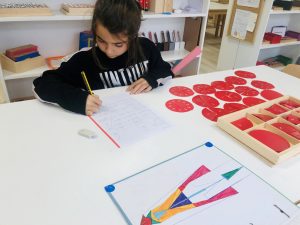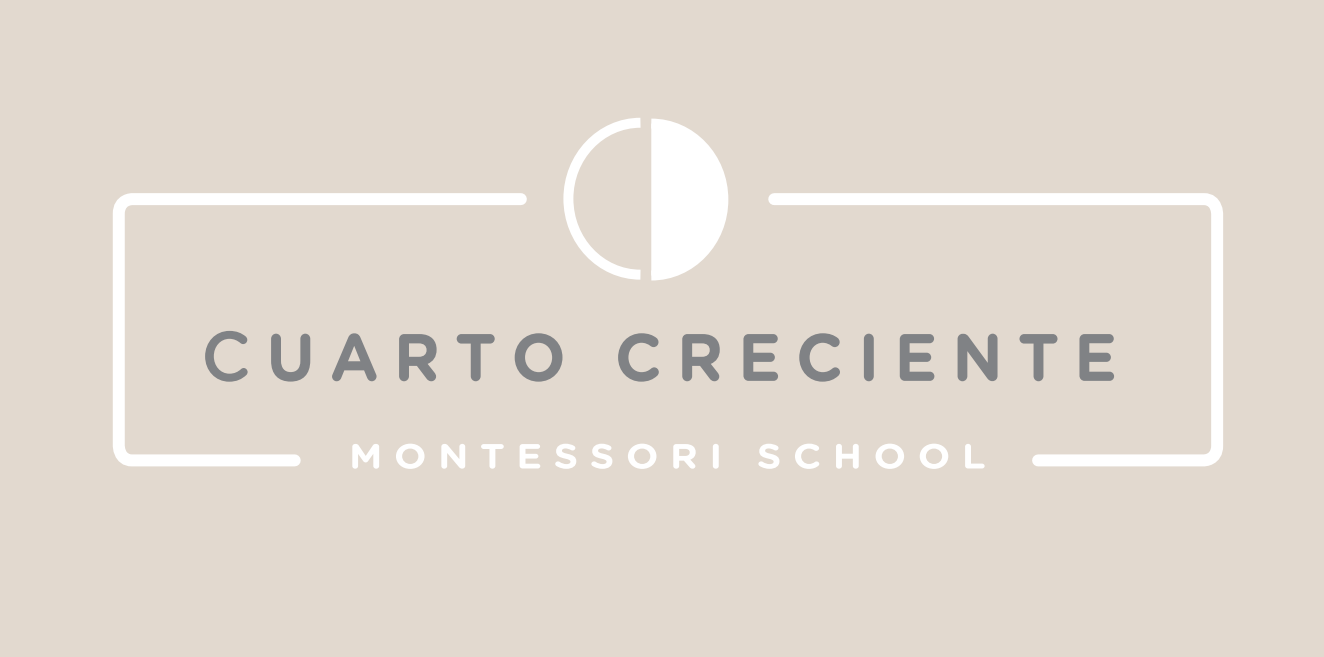
ELEMENTARY: MONTESSORI WORKSHOP
“Education, as it is conceived today, is something separate from both biological and social life. People are prepared for life, by excluding it. ”
During the stages of Workshop I (6-9 years) and Workshop II (9-12 years), corresponding to Elementary Education, children are in what Maria Montessori called “the second level of development”, also known as the REASONING MIND stage.
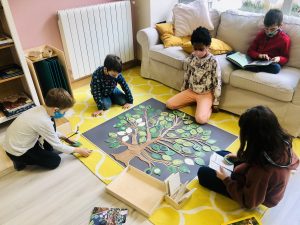 Children in this age group are usually characterized by the need for research and practical exploration, by that curiosity leading them to question everything and an intrinsic motivation to be the active subjects of their own learning. They are also more aware of what is interesting to them and, with the right environment, their imaginative power increases.
Children in this age group are usually characterized by the need for research and practical exploration, by that curiosity leading them to question everything and an intrinsic motivation to be the active subjects of their own learning. They are also more aware of what is interesting to them and, with the right environment, their imaginative power increases.
In addition, children at this age tend to work collaboratively and cooperatively, which enables them to go into detail about a wide variety of projects, develop social skills such as assertiveness and empathy and put their own strategies into practice when it comes to resolution of conflicts, gaining great self-confidence. They master and integrate the cognitive, social and emotional skills required to face present and future challenges.
Due to all of the above, the Elementary stage in the Montessori Method is called Workshop, because even though we follow the same curriculum as in a traditional center, the way in which knowledge is acquired is completely different, as students learn by constantly exploring and experimenting like in a real workshop. They do not remain passive and seated waiting for an adult to tell them what subject or task to tackle, but rather decide and experiment with the available manipulatives, always guided by the adult. This way, the educational environment and the school day are carefully organized and structured so that all their needs are satisfied.
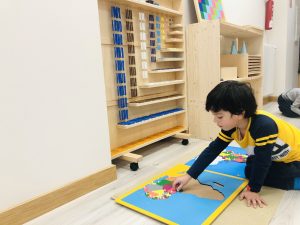
For this reason, learning in the Workshop classrooms takes place under a historical, evolutionary and integrated vision of knowledge and human development. With a comprehensive approach, children discover that everything they learn is interconnected: learning is not about isolated contents within unexciting subjects in a curriculum, but about interrelated parts forming a whole. They discover the holistic functioning of the world around them. It affects them directly and therefore, everything they learn has an interest for them causing their emotions to arouse, which is vital since neuroscience has proven that emotions are the driven force behind learning.
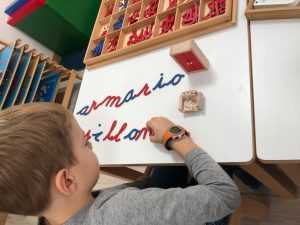
COSMIC EDUCATION is a cornerstone of the Montessori philosophy. Its purpose is to share knowledge and favor the process of self-construction to educate people capable of creating a better world. Thanks to the manipulative material developed for students of this age group, knowledge is acquired once again in a natural and permanent manner.
Based on this comprehensive development of each student, Cuarto Creciente Montessori School also offers essential development areas such as music, painting, garden work and sports, without forgetting that everything takes place in a bilingual environment ENGLISH/SPANISH, with FRENCH subject.
